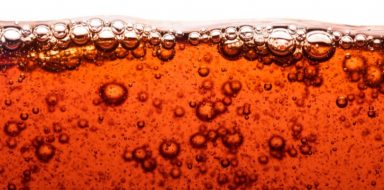Sugar and ADHD
Attention hyperactivity deficit disorder (ADHD) is described as a mental condition in which a person’s brain development and brain activity impacts their ability to focus, the transition from one activity to the next, sit still, or have impulse control.
Unfortunately, ADHD is often identified in young children. In fact, it is reported that anywhere between 4-12 percent of school-aged children are diagnosed with ADHD. The implications of the disorder can impact their academic success and their social development, so it’s critical that we work together to understand this disorder and what influences its symptoms.
It’s no secret that parents and medical professionals are dedicated to understanding more about this condition as a way to help those who live with it. However, throughout the years, there have been some instances of misunderstanding.
One aspect of ADHD that has been debated time and time again is how sugar consumption impacts the condition. For years, parents believed that children with ADHD would have exacerbated symptoms if they ate sugar-enriched foods.
However, research has proven once and for all that this is a complete myth. Sugar does not make ADHD symptoms worse. It has absolutely no influence on the disorder and sugar consumption should be limited for other health reasons and not just because a child has ADHD.
Signs and Symptoms of ADHD
To better understand this concept. One must first understand how ADHD is identified and diagnosed. The most challenging aspect of identifying ADHD in children is that all kids struggle with focus and self-control.
These are skills that develop as the child matures. However, children with ADHD are markedly different from their peers in the way that they struggle with things much more often. The key factors to look for include:
- Inattentive – Children who struggle with maintaining attention even for tasks that they enjoy. Perhaps they can’t sit still through a movie, have difficulty following simple directions, and often start a project and never finish it.
- Hyperactive – Children who can’t seem to sit still will often fidget, tap their feet, twirl their hair or participate in some other continuous movement. They may appear restless and complain of boredom.
- Impulsive – Children with impulse issues may have difficulty waiting in line, make it a point always to be first, push and grab, and interrupt during conversations.
Of course, all kids experience the symptoms described above, but it’s the regularity of these situations that indicate whether or not a child has ADHD. Specifically, if any of these points get in the way of their development, causes social issues, or inhibits the child’s life in some other way then it may be signs of ADHD.
A doctor will be able to identify the disorder through a check-up and evaluation.
A lesser known symptom of ADHD is anger. So, how do these aspects go hand in hand and how does ADHD cause anger? Find out here.
How Does Sugar Relate to ADHD?
Often, parents everywhere think that sugar impacts a child’s behavior. However, it’s important to consider the situations that children often consume sugar.
For instance, a child may have a cookie or piece of cake during a special event with a lot of people, or perhaps they will have a candy before bedtime. All of these situations can cause hyperactivity simply because a child is stimulated or overly tired.
It’s not the sugar that influences their behavior, but rather their environment.
Children who have ADHD already have issues with hyperactivity. It is understandable how a parent may assume that the sugar enhances the situation. However, any changes in behavior are simply a coincidence.
According to a study published in the Journal of Abnormal Child Psychology, a double-blind study proved that sugar did not influence hyperactivity. In the study, children were given real sugar and a placebo.
Some parents were told that their child was given real sugar (even though that were not) and those parents all concluded that their child was more hyperactive than usual. This proves that the assumption that sugar will influence behavior is the driving force behind this misunderstanding.
Of course, sugar should be limited for dietary and dental purposes, but it does not impact behavior.
Conclusion
ADHD is a mental condition that is caused by how the brain naturally develops. Of course, certain factors will overstimulate or influence behavior, but there is no proof that sugar is a driving force behind it.
To better assist in a person with ADHD, proper diagnosis is critical. Children and adults can learn coping mechanisms, and in some cases, medication may help.
If you suspect you or someone you know may have ADHD, it’s best to consult your family doctor for a proper diagnosis and treatment plan.







